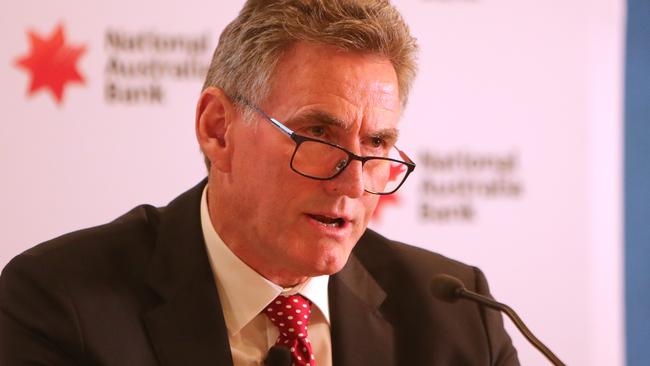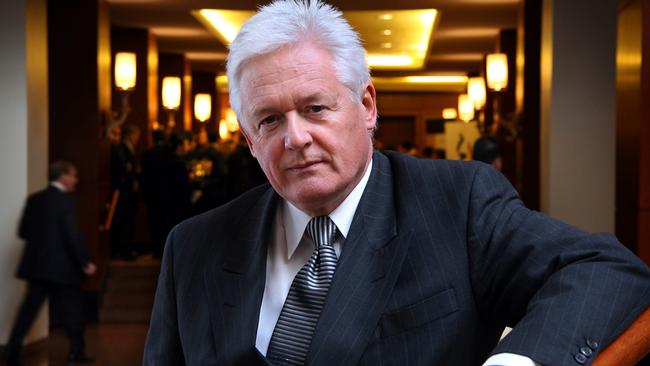
The boards of all Australian banks spend countless hours at every board meeting ticking endless governance boxes but at CBA, Westpac and NAB, the box ticking was useless because the directors had little knowledge of major events taking place way below them.
As a result we have seen two chairmen and three CEOs stand down. Unless a totally different way of managing these giant organisations can be devised, it’s time to seriously consider splitting them up so that they can be properly managed and meet the regulations that come with their franchise, as well as deliver long term value to shareholders and enhance the experience of customers.
We also need to look much more closely at who goes on these big corporate boards with Westpac an illustration of how not to construct a board.
The CBA-Westpac-NAB horrors have a common theme: over many years bad events had been taking place at the operational levels and the people who knew that there was something wrong we’re not able to get the message through the various levels of bureaucracy to the board. Indeed, trying to get a message up the line can sometimes cause the person to lose their employment.
READ MORE: How banks and debt are changing society | Big job ahead as NAB chief starts work | Weasel words too popular with the modern manager
And technology is often making the problem worse by deskilling the bottom layers and leaving the boards even more vulnerable. While the current focus of attention is on banks, the problem will increasingly infect the operations of a large number of non-bank boards which also have responsibilities that they cannot fulfil.
Connect with the coal face
NAB’s new CEO Ross McEwan starts this week, and as he settles in, he will discover that his predecessor did start a change process but encountered mountains of previously concealed events and that ultimately destroyed both the CEO and chairman.
The banks have been granted very valuable franchises, but with those franchises come a great diversity of regulation and a large number of regulating bodies. In years gone by, the regulators adopted a soft approach, but they are now each justifying their roles and are examining bank operations in great detail.
The only way banks boards and CEOs can cope is to have close ties with the staff on the coal face. One of the few bank CEOs to understand this was John McFarlane at ANZ, who with the backing of his chairman Charles Goode and John Dahlsen (who was in the ANZ board for two decades) set up a system for discovering the views and experiences of staff at the coal face.
Some of the measures that McFarlane introduced between 1997 and 2007 have survived into the current Shayne Elliott era.

ANZ was not free from regulatory problems but has encountered nothing like the CBA, Westpac and NAB debacles. To make sure they are getting factual information from the coal face, boards require a variety of skills. The Westpac board had many people with of sound skills but three of its directors, including the chairman, came out of the KPMG gene pool and a fourth came from one of Westpac’s main legal advisers, Allens. Like CBA and NAB, the information that Westpac’s board required was at the lower levels of management and could not rise to the top.
But in many ways the problem goes much further. Bank boards have also become remote from bank customers. All four big banks have found it cheaper to outsource large slabs of their housing loan distribution to brokers, which slashed their contact to customers and their needs. The banks have increasingly become mass producers of product. In the short term, it has been very profitable and boosted bank dividends and CEO salaries, but in the long term it’s a disaster. As my colleague Alan Kohler pointed out at the weekend, house lending has generated greater returns on equity than business lending. As a result, Australian enterprises in many areas have been starved of capital and house prices have gone through the roof.

Split and focus
Retail banking, commercial banking, insurance, superannuation and financial planning are some the activities our major banks currently undertake. Some banks are exiting or reducing their exposure to wealth products like superannuation and financial planning. But there is also a case for separating out retail banking and commercial banking so that each can develop their markets without cross subsidisation.
The separation of steel from BHP shook traditional thinking to the core, but the successful BlueScope operation could never have been developed while it was BHP Steel.
Some time back NAB looked very closely at splitting its operation including separating retail and commercial banking. The sums looked good but were destroyed by capital gains and stamp duty issues. Given the attacks on banks from non-bank financial outfits, and the complexity of regulation, it may be that all the banks will need to look at making their operations simpler and more focussed by separating the activities into separate entities.
If that’s the most efficient way to run banking in Australia then it should not be curbed by state and federal taxation systems.




Whether it be the money laundering, pedophilia or the fees for no service affairs, it is now clear that the management systems of three of our top five ASX capitalised companies have simply not been working.